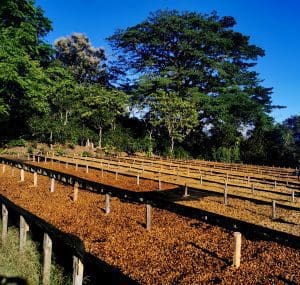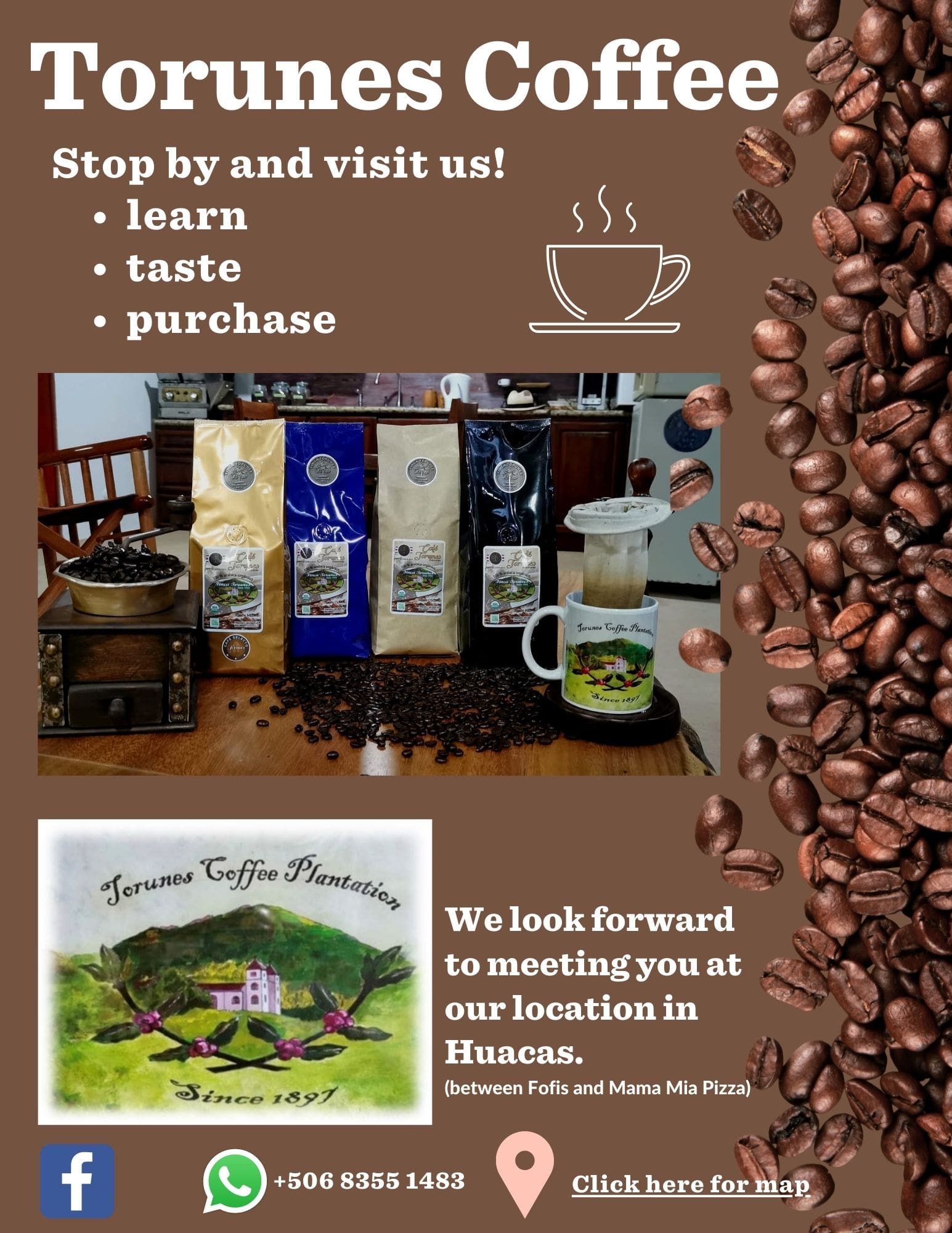
The Soul of a Coffee Legacy
Soul Gives is a registered non-profit that works with indigenous groups in Costa Rica and Mexico. They qualify each business, work with them to empower them to increase their business. Soul Gives markets their items in North America and in Central America to consumers who are eco-friendly consumers.
Discover more about them by researching their website.

The story of the Torunes coffee plantation in Costa Rica and SoulGives coffee has a remarkable beginning. My unusual lifetime experiences almost delivered me to death’s door. Instead, I ended up in Costa Rica. There I discovered some amazing people, complete with almost fable-like stories of their own, growing coffee in challenging circumstances.
Thus, my idea to establish a nonprofit organization came to life for me. The mission would be to tell the story of these people and help them bring their coffee to the United States, while at the same time serving others. I named the nonprofit SoulGives.
I had suffered severe complications from sinus surgery resulting in a brain injury. One of the treatments for what was determined to be a cerebral spinal fluid (CSF) leak was a surgical implantation of a brain shunt. Although this resolves most of the brain pressure issues, my condition is still affected by pressure from changes in weather or altitude. This increases the severity of my headaches, which I experienced frequently and for prolonged periods in my Colorado home. However, I feel much better at sea level, and the coasts of Costa Rica and Mexico are where I feel the best.
Health and healing benefits
One of the things that helps people with my condition is coffee! When the headaches get bad, a cup of coffee works well to temper the pain. There have been studies and many articles written about the benefits of drinking coffee. For me, the greatest effect is that it stops my debilitating headaches. Oh, how I love my good cup of joe. It may even be why my middle name is Jo.
My husband wanted to help me, so we decided to live at sea level as much as possible. This is how we met the Esquivel family in Costa Rica: Jaime and his brothers, Jorge, Ivan, Allen, and Erick; sisters, Denia, Flory and Jenny. Mother, Elvis; and strong dad, Don Francisco
SoulGives Mission
1. We’re a small woman-owned 501(c)(3) nonprofit company who has engaged in this endeavor for three reasons:
- We want to mitigate or alleviate poverty in selected Latin American populations by assisting indigenous artisans to expand how they sell their crafts by going directly to the US and Canada.
- Share our business experience with culturally appropriate perspectives to ensure improvement in production and quality products.
- We believe in the Biblical model of empowering the poor by mentoring and encouragement through our services.
2. What values will drive our organization’s activity?
- Empowerment of clients in business development and marketing
- Solutions driven results of the process from creation to production to market to delivery
- Self-sustainable local business
 Jaime owns the J&G Furniture Store in Huacas, Guanacaste and does incredible woodworking. Whenever we visited his shop, we would always buy the family coffee from him. I would take it back to the States for friends and family. Their feedback was consistent — it was the best coffee they had ever tasted and it became the only coffee that they wanted to drink. We joked that it was like gold and we almost needed a hiding place for it so it wouldn’t run out. The sad part was that the only way our friends and family could get this coffee was if we brought it back home to the U.S. in our suitcases. We managed to keep them about halfway supplied until the pandemic changed our travel situation.
Jaime owns the J&G Furniture Store in Huacas, Guanacaste and does incredible woodworking. Whenever we visited his shop, we would always buy the family coffee from him. I would take it back to the States for friends and family. Their feedback was consistent — it was the best coffee they had ever tasted and it became the only coffee that they wanted to drink. We joked that it was like gold and we almost needed a hiding place for it so it wouldn’t run out. The sad part was that the only way our friends and family could get this coffee was if we brought it back home to the U.S. in our suitcases. We managed to keep them about halfway supplied until the pandemic changed our travel situation.
While quarantined down in Costa Rica, we decided to learn more about Jaime’s family coffee story — how the Torunes coffee farm got started. We were fortunate to be able to see and experience the farm through the eyes of the family.
A friend from the Boruca tribe — an indigenous group in central Costa Rica — told me of their strong belief that the eyes are the windows to a person’s soul. This belief is so important in understanding the story of what true organic coffee farming is. Although Jaime speaks fluent Spanish and English, it was really helpful that he gave me the history in a way that made my soul sing for his family, through their vibrant stories. I saw in his eyes a deep soul of family commitment.

Oxcart inside store
Oxcart symbolism
Jaime told me the traditional story of the colorfully painted ox cart, which is now an official national symbol of Costa Rica. The best coffee is grown in the rugged volcanic mountains, and for over 100 years, the oxcart was the best way to bring the coffee to the port cities. The ox cart legacy is revered and widely shared in part because of its great symbolic meaning. To be yoked means to come alongside one another like the oxen were. The old ox comes alongside the young one and shows him how to follow the lead of the driver. If the ox strays, the driver will try to correct him. Sometimes the ox would get sores because the yoke would rub him the wrong way. It was not due to a bad fit; it was because the ox was stubborn and was resisting the yoke! I found this parable so amazing because we all resist something in life. We all want to go our own way down our own path.
Then Jaime talked about how his siblings all had their own paths … or so it seemed. Alan was a banker in San José and had a degree in international trade. Ivan earned a degree in agricultural engineering. Floribeth became an attorney. Eric liked to pan for gold and became an accomplished builder.
I learned how Francisco, Jaime and Eric stayed working on the farm while the other brothers worked their other jobs. On the farm they grew tomato plants for a second crop, and had to spray them with a very bad pesticide that was making everyone very sick, particularly the sons. This is what made them change.
Around the same time in Costa Rica, in the 1990s, there was a movement for farms to move to organic farming. Farmers were told that all they would have to do to obtain organic certification from the U.S. and Europe was to change the way they grew the coffee. They were told organic-certified coffee could earn more money.
At first, less than 8% of Costa Rican farms stepped up. So why is there such a small amount of organic coffee growers in Costa Rica with this true certification? The answer is that it was so difficult for farmers to make the necessary changes from using chemicals — following all the regulations and learning how to grow the plants organically — and still make a profit. But they did not get paid more money. The Esquivel family survived these challenges by working other jobs until the new methods came to fruition and they could return to work on the coffee farm.
Another question — why is Costa Rican coffee the best? The answer is that it grows well in volcanic ash and at high altitudes. It’s best grown on the side of mountainous slopes where the process of harvesting the beans must be done by hand instead of mechanical harvesters. Thus, large corporations are not interested in buying up little parcels of mountainous land, because they cannot be easily harvested! Machines work fast. The coffee farms have to stay family-run.
Most of the farms in Costa Rica that went organic were not able to financially sustain it. They had to go back to the old ways so they could meet expenses. Currently, fewer than 1% of the farms in Costa Rica are organic. The Torunes coffee farm owned by the Esquivel family is one out of only 100 with the special seal of organic coffee, and you can tell when you drink it.
SoulGives believes in these organic coffee farms and hopes to open the door to a U.S. market. At the same time, a meaningful purpose is served by donating profits to help indigenous artisans affected by disruptions to tourism.
Today, all of the Esquivel family members live on the Torunes farm except for Jaime, who still runs his furniture store. Jaime and his family know that this is what his father always wanted. His dream was to see their coffee made the traditional way and enjoyed as the best flavored coffee in the world.
Jaime and his family have built beautiful cabins where visitors can go and learn about the coffee growing process that they have developed. Hopefully soon, they may even have some yoga to go along with that coffee!
Any visitor to Costa Rica is welcome to visit J&G Furniture Store to talk over a cup of coffee with Jaime about the yoke of the ox cart that hangs in his store. I see this place, its stories, and its culture as magical. I am thrilled to be just a small part of that picture with SoulGives. I plan to walk “alongside” to carry the coffee to the U.S. so more people can enjoy the original taste of Costa Rican coffee.



